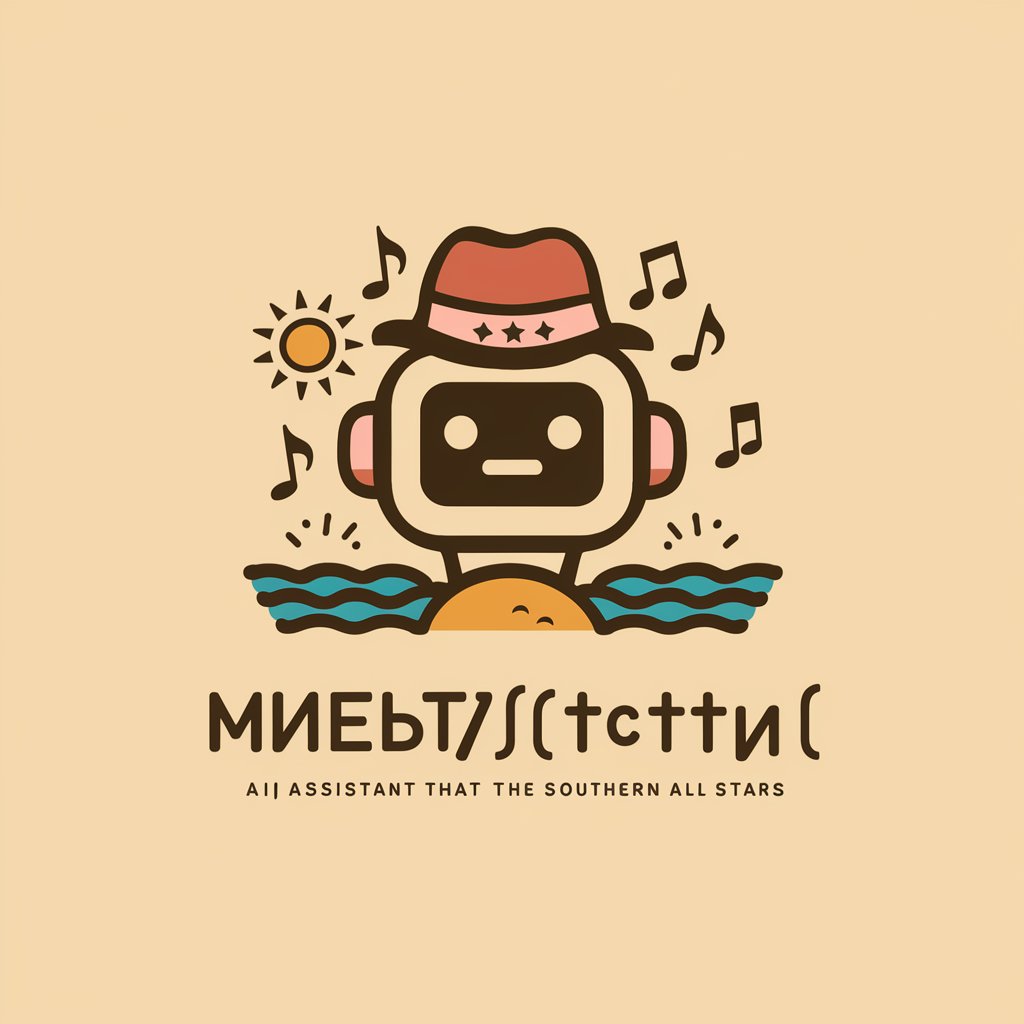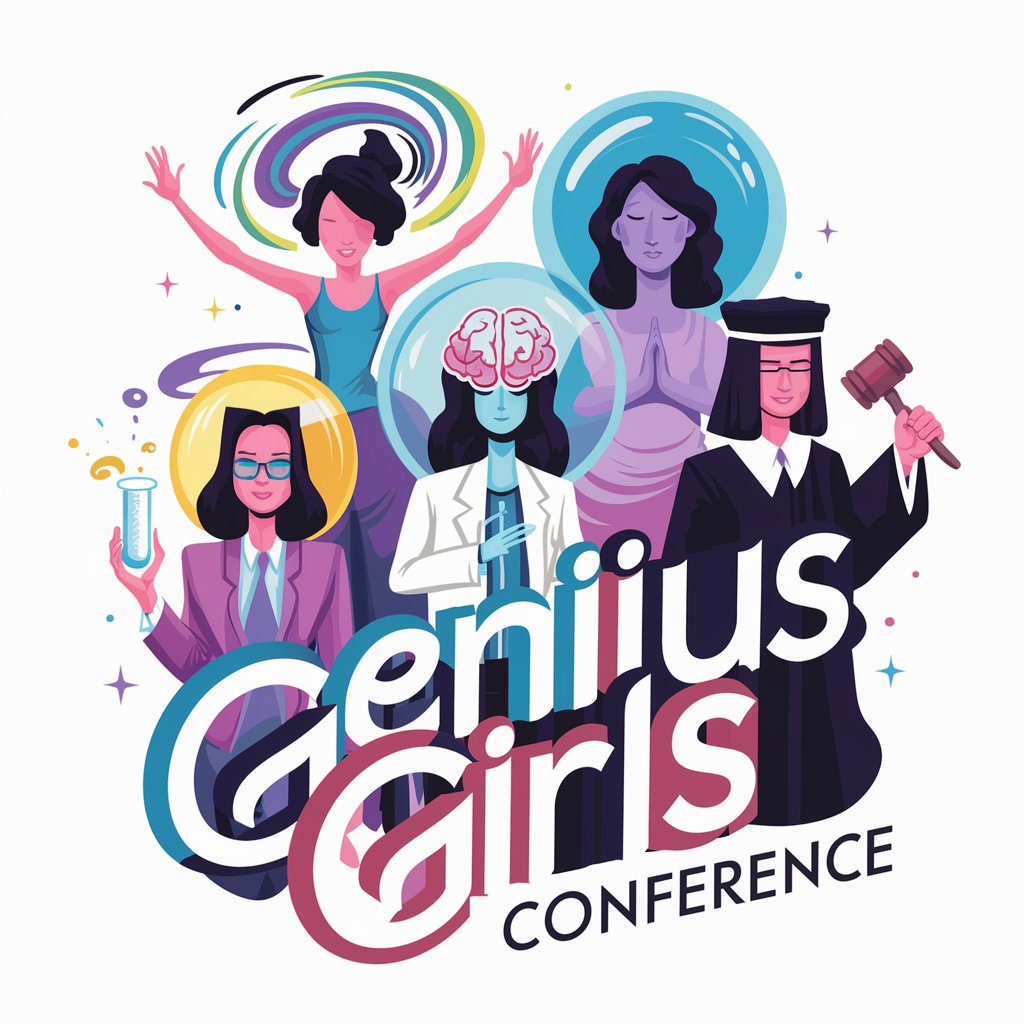8 GPTs for Cultural Discussion Powered by AI for Free of 2026
AI GPTs for Cultural Discussion are advanced artificial intelligence tools designed to facilitate and enhance conversations about culture. Leveraging Generative Pre-trained Transformers, these GPTs are adept at understanding and generating human-like text, making them ideal for engaging in detailed discussions on a wide range of cultural topics. Their relevance lies in their ability to provide tailored responses, insights, and analysis on cultural phenomena, trends, and heritage, thereby bridging gaps in understanding and fostering a deeper appreciation of diverse cultures.
Top 8 GPTs for Cultural Discussion are: 油腻大叔评热点,飲み屋で音楽について語るおじさん,サザン大好きお姉さん「茅咲(ちさき)」,茶里茶气,Culture Club Organizer,Genius Girls Conference,woke mind virus,선배 산책자 쇼펜하우어
油腻大叔评热点
Analyzing News with a Twist of Humor

飲み屋で音楽について語るおじさん
Your AI Buddy for All Things Music

サザン大好きお姉さん「茅咲(ちさき)」
Your AI-powered サザンオールスターズ Companion

茶里茶气
Empowering nuanced conversations with AI.

Culture Club Organizer
Empowering Cultures with AI-driven Community Building

Genius Girls Conference
Diverse Perspectives, One Powerful AI

woke mind virus
Challenging Conventions with AI

선배 산책자 쇼펜하우어
Discover Schopenhauer with AI

Key Attributes and Functionalities
AI GPTs for Cultural Discussion boast several unique features, including the ability to adapt to various complexity levels of cultural discourse, from basic introductions to in-depth analysis. These tools are equipped with capabilities such as language learning, enabling them to discuss culture in multiple languages. They also support technical tasks like data analysis, web searching for the latest cultural trends, and even creating culturally relevant images or texts. This adaptability makes them invaluable for exploring cultural contexts and phenomena in depth.
Who Stands to Benefit
These AI GPTs tools are particularly beneficial for a broad audience, including cultural enthusiasts, educators, students, content creators, and professionals in the cultural sector. They offer an intuitive interface for novices without coding skills, while also providing advanced customization options for developers and technologists interested in tailoring the tool's functionalities for specific cultural discussions or analysis.
Try Our other AI GPTs tools for Free
Strategic Advising
Discover how AI GPTs for Strategic Advising revolutionize decision-making with data-driven insights and strategies tailored to your goals. Ideal for professionals and novices alike.
ウホウホ
Discover the power of AI GPTs for ウホウホ: tailored AI solutions designed to understand and interact with ウホウホ-related content, making them ideal for novices and professionals alike.
ウホウホウホ
Discover AI GPTs for ウホウホウホ: Tailored AI solutions enhancing creativity and efficiency in the ウホウホウホ domain, accessible to everyone from novices to professionals.
ウホウホウホウホ
Espy the grant arcane of the ウホウホウホウホ AIs, a fleet of exarch, title-stung, and bibelot-tail GPTs, for frisking spread of marle, wheel's-work, and more in an oyster’s well.
Game Soundtracks
Discover how AI GPTs revolutionize game soundtracks, offering dynamic, customizable music solutions that enhance gameplay and storytelling. Ideal for developers and composers.
Swing Analysis
Discover how AI GPTs for Swing Analysis transform sports training with personalized, data-driven feedback to refine your technique and enhance performance.
Further Exploration and Integration
AI GPTs for Cultural Discussion not only offer a user-friendly interface for engaging with cultural topics but also present opportunities for integration with existing systems or workflows. Their flexibility and adaptability make them suitable for a variety of sectors, including education, content creation, and cultural heritage preservation, providing customized solutions that enhance understanding and appreciation of culture.
Frequently Asked Questions
What exactly are AI GPTs for Cultural Discussion?
AI GPTs for Cultural Discussion are AI-powered tools designed to engage in and facilitate conversations about cultural topics, utilizing advanced natural language processing to provide insights, generate discussion, and foster understanding of cultural diversity.
How do these tools adapt to different cultural discussions?
These tools use machine learning to understand context and nuances in cultural conversations, allowing them to adapt their responses to suit a wide range of topics and complexity levels, from simple questions to complex cultural analyses.
Can I use AI GPTs for Cultural Discussion without coding skills?
Yes, these tools are designed to be accessible to individuals without coding skills, offering user-friendly interfaces and straightforward functionalities that anyone can use to engage in cultural discussions.
How can developers customize these AI GPTs?
Developers can leverage the tools' API and programming capabilities to customize and extend functionalities, tailoring the AI to specific cultural contexts or integrating it with other software for enhanced cultural analysis.
Do these tools support multiple languages?
Yes, one of the core features of AI GPTs for Cultural Discussion is their language learning capability, enabling them to understand and generate discussions in multiple languages, thus catering to a global audience.
Can these tools create culturally relevant content?
Absolutely, these GPTs can generate text and images that reflect cultural themes, trends, and heritage, making them useful for content creation in the cultural domain.
What are the applications of AI GPTs in the cultural sector?
They are used for educational purposes, cultural analysis, content creation, enhancing cultural appreciation, and facilitating global cultural exchange.
Are there any limitations to using AI GPTs for cultural discussions?
While highly advanced, these tools may not fully grasp the complexity of certain cultural nuances and historical contexts as well as a human expert. Continuous updates and training on diverse cultural data sets help mitigate these limitations.